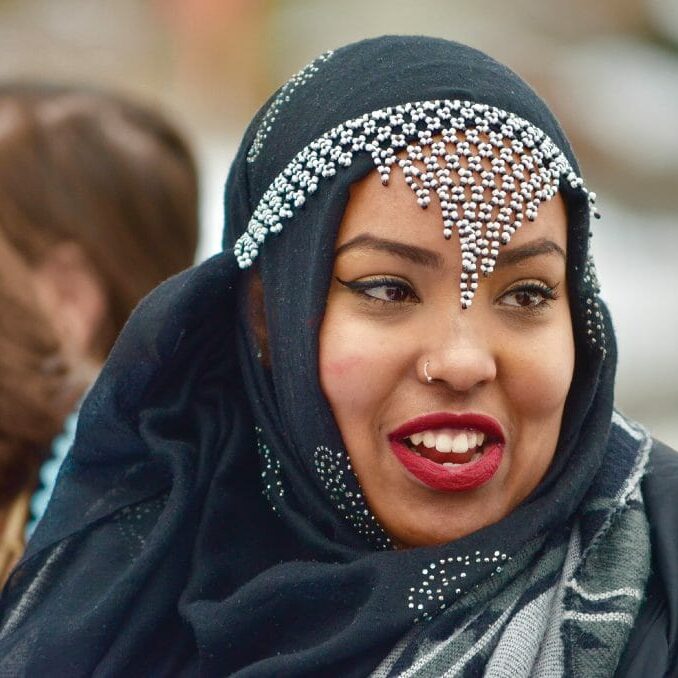
Amina Abawajy: the first Black president of the Dalhousie Student Union
Last year, she was also the first Black executive
The Dalhousie Student Union elected its first Black executive member in 2016; Amina Abawajy, currently serves as the president of the DSU.
Abawajy, a Halifax-born Oromo Muslim woman, grew up just down the street from Dalhousie University.
She studied international development studies and computer science during her undergrad and she’s become increasingly more involved in student life and the community – even after graduating.
Abawajy graduated in June but she still takes classes at Dal.
“The reason that I decided to get involved was because I didn’t see myself and my communities really reflected in the leadership, the programming, the events or advocacy strategies,” said Abawajy, noting her passion for human rights, social justice and community organizing.
“I thought, you know, if that is something that I’m seeing, and that’s what I’m hearing from members within my community, be the change that you want to see.”
In the 2016-2017 term, Abawajy worked as the vice president academic and external under Kathleen Reid’s presidency; she was the first Black DSU executive.
She was also involved with many societies, including the African Student Association and Women in Technology Society; she was the president and the founder of Girls Take Initiative.
In March 2017, she was elected as the first Black president of the DSU, for the 2017-2018 academic year.
“To think that there has not been a Black executive at all, within the history of the DSU, is disappointing,” Abawajy said. “It really shouldn’t have taken this long for there to be Black leadership within the DSU.”
Since taking office, Abawajy’s initiated the creation of the Survivor Support Centre, which is dedicated to supporting survivors of sexualized violence and building a culture of consent on campus, which is currently in its first year.
Abawajy made it her mission to be more accessible to students by starting a service called “Text the Prez.”
She gave out her phone number during O-Week and encouraged students to reach out and ask her questions or bring up any concerns they may have or to text her if they just need a friend. 170 individuals have reached out to her since the start of this project.
She also started the Racial Justice Symposium, a conference that aims to build Indigenous and racialized leadership and discuss issues in these communities. The DSU will be hosting its second conference on Feb. 9 and 10.
“I love my position. To be honest, I was skeptical about some parts coming in. For example, meetings on meetings,” says Abawajy, “but it’s been really fulfilling.”
She loves to interact and meet many different people and says that she really enjoys the ever-changing work environment.
Abawajy believes that the DSU having a Black executive is a step in the right direction because holding such a position of power is one way to bring to light issues that disproportionately affect racialized communities.
But it’s only one step.
“I think we really need to look at why this is the first time that this has happened, and what we can do to ensure that our leadership is more representative of the community we are a part of,” she said.
The DSU represents over 19,000 students and a diversity of people, experiences and identities, and Abawajy says she hopes to see this reflected within the leadership and programming under the next executive.
She also says she is happy with the two years she’s been on the executive and what she’s been able to accomplish. She encourages new voices with new perspectives and ideas to express themselves by running for a position on the DSU executive in May.
“If you are interested in running, go for it. There are a lot of opportunities and skills that can be developed within these roles that are super useful; I can see it being a daunting experience, but the DSU’s got you!”






